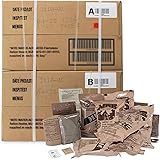Table of Contents
- Environmental Impact and Sustainability
- Cost Savings in the Long Run
- Energy Independence and Security
- Technological Advancements and Accessibility
Environmental Impact and Sustainability
Reducing Carbon Footprint
One of the strongest arguments for alternative energy sources is their significant reduction in carbon emissions compared to fossil fuels. When we choose solar, wind, or hydro energy, we’re not just saving money—we’re taking steps to ensure a healthier planet for future generations. Personally, I find it incredibly rewarding to know that my energy choices contribute less to global warming.
Every little bit counts, right? For example, switching to solar panels can drastically cut down carbon emissions. I remember when I first installed mine, the energy report showed a 30% reduction in my household’s carbon footprint. That felt pretty amazing, knowing I was making a real difference.
And honestly, it’s not just about numbers. The less we throw up into the atmosphere, the better our air quality will be, making for a breathable, healthier world. Imagine a future where our kids don’t have to worry about smog and climate change every day. That’s the kind of legacy we can build with alternative energy.
Conserving Natural Resources
Alternative energy sources like wind, solar, and hydropower are renewable. That means they don’t deplete our planet’s resources the way fossil fuels do. This is something I keep coming back to because it’s all about sustainability, for us and generations to come.
When I look at the way we have historically consumed resources, it’s clear we’ve been on a path that’s just not sustainable. Coal, oil, and natural gas are finite. Once they’re gone, they’re gone. But the sun? Wind? Water? They’re here to stay.
I find great satisfaction in knowing that my energy choices aren’t taking away from what’s left for future generations. It’s like planting a tree—you do it not just for shade today, but for the shade it will provide long after you’re gone.
Protecting Ecosystems
The extraction and use of fossil fuels have significant harmful impacts on ecosystems worldwide. From oil spills to deforestation, the effect is devastating. Transitioning to alternative energy is a proactive move to protect these vital ecosystems.
I’ve seen firsthand the destruction that resource extraction can cause. Remember the oil spills that dominated the headlines a few years back? Those weren’t just news events—they were catastrophic environmental disasters. Moving towards cleaner energy options helps prevent these kinds of tragedies.
== > What if ... Get a FREE Subscription to PREPARE
And it doesn’t stop at preventing damage. It also means there’s less pollution entering our waterways and soil. It’s about creating a cleaner, healthier environment overall. We have to think big picture here if we’re going to make a meaningful impact.
Cost Savings in the Long Run
Initial Investment vs. Future Savings
One major barrier people often talk about is the initial investment for alternative energy solutions. It’s true; the upfront costs can be significant. But let me tell you—it’s worth it. It’s like buying in bulk; the savings over time add up in a big way.
When I first considered solar panels, I balked at the price, too. However, after digging into the numbers, the long-term savings were undeniable. Within a few years, the panels had practically paid for themselves, and now I have almost zero energy costs.
In the long term, the reduced monthly energy bills and potential government incentives can offset your initial spend. Sometimes, we need to think of it as an investment in our future rather than an expense. Plus, who doesn’t like saving money?
Lower Maintenance Costs
Alternative energy systems generally require less maintenance than traditional systems. Think about it—no complicated machinery, no fuel to burn, and less wear and tear. This translates into lower maintenance costs over the systems’ lifespans.
I’ve found that maintaining solar panels is a lot simpler and cheaper than maintaining a conventional heating system. You might have to clean them occasionally, but it’s a small price to pay for something that’s going to last decades.
Knowing that I won’t have to deal with constant repairs and the associated costs is a relief. It’s one less thing to worry about, and that peace of mind itself is worth a lot.
Property Value Increase
Here’s another cool thing—installing alternative energy systems can actually increase your property’s value. Buyers are increasingly looking for homes with energy-efficient features, and they’re willing to pay a premium for them.
Think about it from a buyer’s perspective. A home with solar panels or a wind turbine means lower utility bills for them right off the bat. It’s a win-win. When I had my solar system installed, my property value shot up, making it a smart real estate move as well as an environmental one.
In essence, you’re not just spending money—you’re adding value to your asset. So, when you do decide to sell, you might find yourself pocketing more cash because of your early investment in alternative energy.
Energy Independence and Security
Reducing Dependence on Utility Companies
One of the greatest benefits of alternative energy sources is the freedom they provide. By generating your own energy, you’re less reliant on utility companies. This can give you a sense of control that’s hard to find with conventional energy sources.
I can attest to the joy of getting an energy bill of zero dollars. It’s empowering. You’re no longer at the mercy of rate hikes or power outages caused by aging infrastructures.
This independence not only saves you money, but it also means you’re not susceptible to the same risks and vulnerabilities faced by those who rely solely on the grid. It’s a pretty liberating feeling, I must say.
Reliability During Power Outages
Sometimes, the grid fails. Whether it’s due to natural disasters or other issues, outages can be a significant inconvenience. But, if you have alternative energy solutions like solar panels with battery storage, you’ve got a backup system ready to go.
I’ve lived in areas prone to power outages, and having a renewable energy system acted as a safety net. Knowing that I wouldn’t be left in the dark during a storm was incredibly reassuring.
It’s not just about convenience, either. Reliable power means your home stays secure, your food stays fresh, and life goes on almost uninterrupted. It’s these moments that make me grateful for my investment in alternative energy.
National Energy Security
On a larger scale, increasing the use of alternative energy sources contributes to national energy security. By reducing dependence on foreign oil and finite resources, we’re making our country more self-reliant and less vulnerable to global market fluctuations.
I always think about the geopolitical impact here. Less dependence on imported fuels means we’re less entangled in international energy conflicts, making us more stable and secure as a nation.
Every step we take towards renewable energy is a step towards a more secure, self-reliant nation. This not only impacts national policy but also trickles down to individual security. It’s a ripple effect that starts with individual choices like yours and mine.
Technological Advancements and Accessibility
Improved Efficiency
Technological advancements have significantly increased the efficiency of alternative energy solutions. Modern solar panels, for example, convert sunlight into electricity more effectively than ever before.
When I first got interested in solar energy, the technology was still relatively new and not as efficient. Fast forward a few years, and the panel efficiency has doubled. The power output today would have required twice the panel area a decade ago.
This improved efficiency means better returns on your investment and more energy generated from the same footprint. It’s exciting to think about where this technology will go next and how much more efficient it will get!
Decreasing Costs
As technologies advance, costs are decreasing, making it more accessible for the average consumer. Solar panels, wind turbines, and home batteries are becoming more affordable each year.
I remember when going solar almost seemed like a luxury. Nowadays, the costs are much more reasonable, and with various financing options, even folks on a budget can get in on clean energy solutions.
This trend towards decreasing costs is encouraging. It makes renewable energy not just an ethical choice, but a practical one too. You don’t have to be a millionaire to afford alternative energy anymore, and that’s huge.
Innovation and New Solutions
Lastly, the field of renewable energy is ripe with innovation. From advancements in battery storage to new forms of renewable energy like ocean wave technology, the future is incredibly bright.
I’ve always been a bit of a tech-enthusiast, and the constant improvements and innovations in renewable energy get me excited. It’s like watching the smartphone revolution but in the energy sector. Every year brings something new, better, and more efficient.
Embracing alternative energy means staying on the cutting edge of these technologies. It’s an involvement in a tech evolution that’s creating a better world, one breakthrough at a time.
FAQ
1. How much can I really save by switching to alternative energy?
The long-term savings can be substantial. While the initial investment might be high, monthly savings on energy bills, lower maintenance costs, and potential property value increases make it a financially smart move.
2. How do alternative energy sources help the environment?
They reduce carbon emissions, conserve natural resources, and protect ecosystems from the harmful effects of fossil fuel extraction and use.
3. Are alternative energy sources reliable during power outages?
Yes, especially when paired with battery storage. Renewable energy systems can provide a reliable backup during grid failures, ensuring you have power when you need it most.
4. Is the technology for alternative energy still improving?
Absolutely. Advancements are continuously being made in efficiency, cost reduction, and new solutions. The field of renewable energy is rapidly evolving and becoming more accessible every year.






